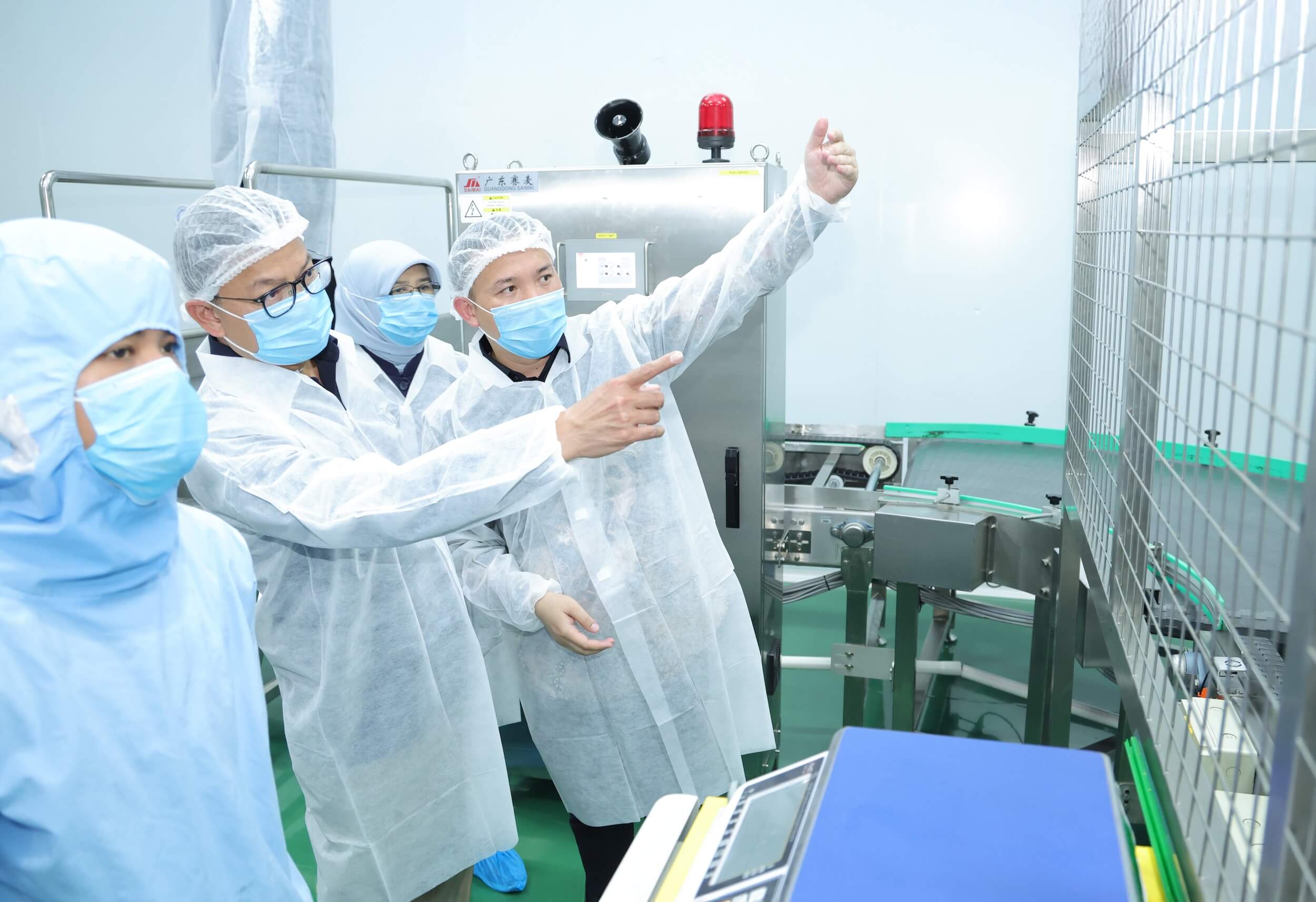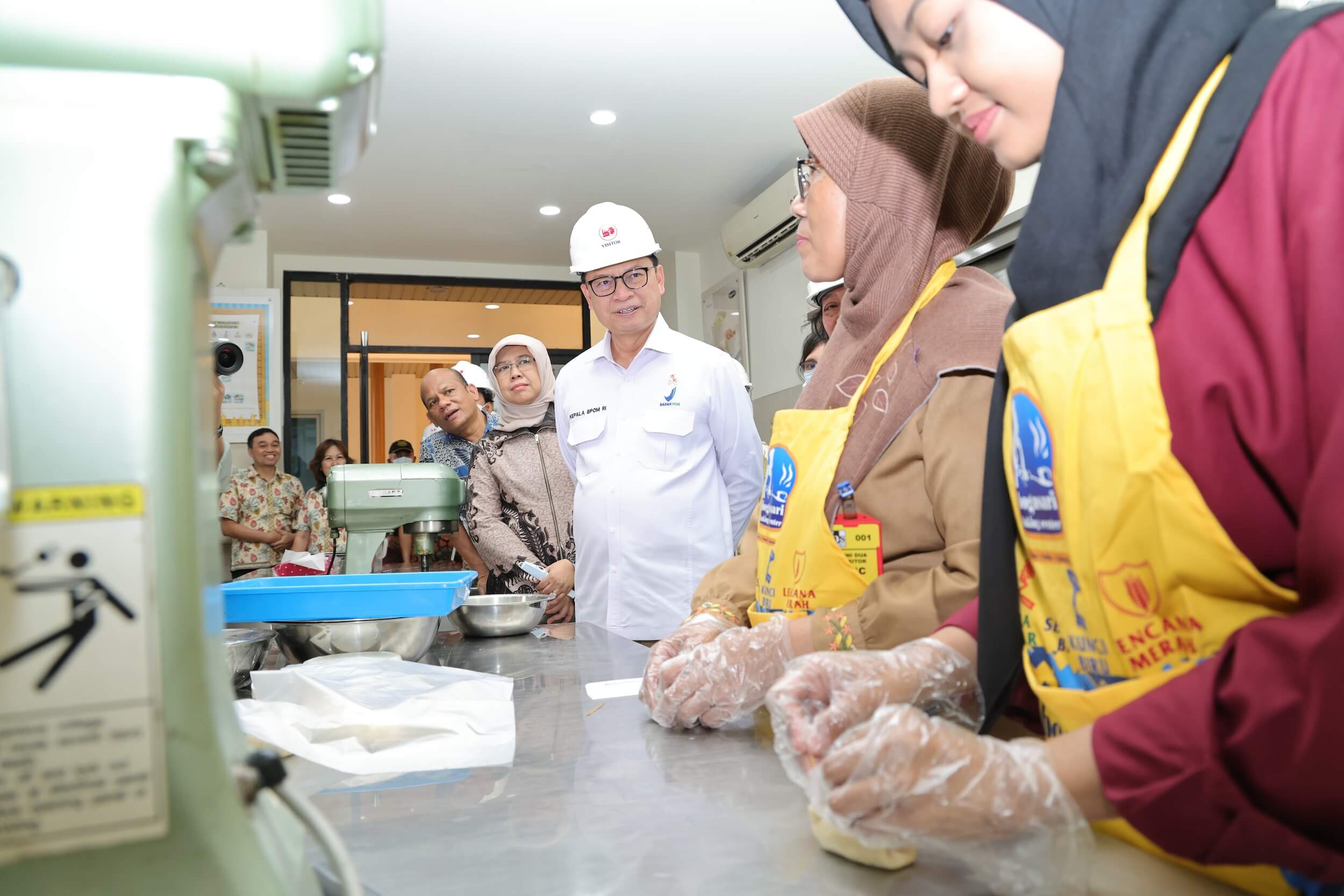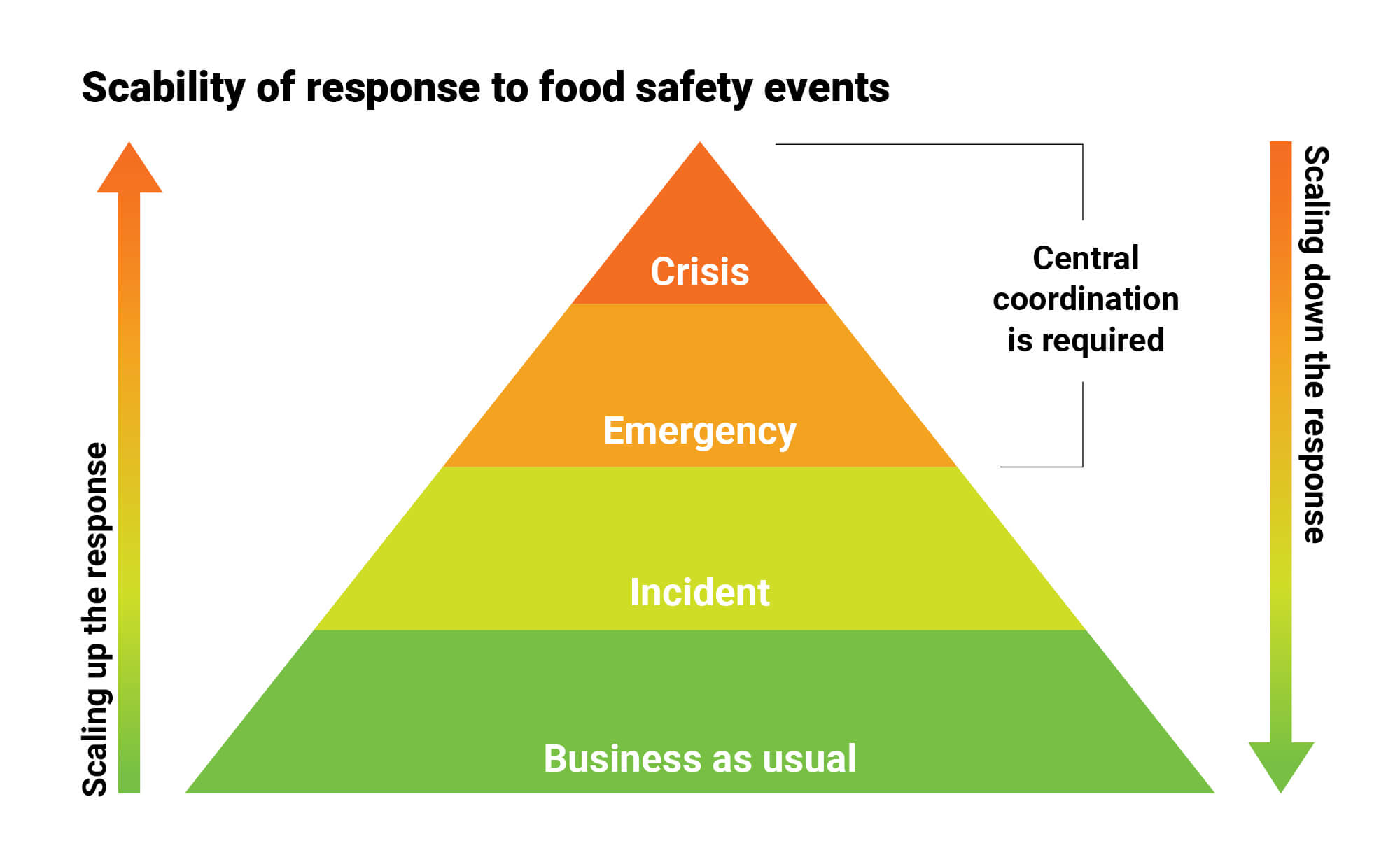


Dr. Taruna Ikrar chairs the ASEAN Health Sector Cluster 4, which focuses on ensuring food safety. He outlines the sector's priorities and regional mechanisms, including the ASEAN Food Safety Emergency Response. His discussion covers the region's most pressing food safety hazards, the challenges involved in educating both the public and businesses, and the promising role of emerging technologies in enhancing risk detection and promoting safer food practices.

According to the World Health Organization (WHO) report, Estimates of the Global Burden of Foodborne Diseases (2015), the highest burden of foodborne diseases in Southeast Asia is primarily caused by Salmonella spp. and aflatoxin contamination. These food safety hazards remain a major concern in the ASEAN region to this day, requiring coordinated efforts to ensure food safety across the region.
To tackle this challenge, ASEAN Member States have committed to implementing science-based risk assessments at the regional level. Notably, assessments have been conducted on Salmonella spp. in cooked chicken dishes and aflatoxin contamination in peanuts and corn. These studies were carried out under the ASEAN Risk Assessment Centre for Food Safety (ARAC) to provide essential data to guide policymakers in developing targeted food safety measures.
Another food safety concern is the emerging food safety risks resulting from the human-animal-environment interface, which has heightened the risk of foodborne outbreaks and zoonotic diseases. Addressing these risks requires multisectoral and multinational collaboration. Recognising the need for multisectoral collaboration in the region, ASEAN has launched the ASEAN One Health Network and then developed the ASEAN One Health Joint Plan of Action in 2024. We hope that these regional initiatives can strengthen our preparedness and response to outbreaks and emerging infectious diseases.
How crucial is increasing food safety awareness in a region like ASEAN? What are the challenges in educating people and businesses about food handling and consumption risks and hazards?
Food safety is a critical public health concern in ASEAN, a region with diverse food cultures, supply chains, and regulatory frameworks. With rapid urbanisation, globalisation of food trade, and the increasing popularity of street food and informal markets, the risk of foodborne illnesses remains high. Raising awareness about food safety among consumers and businesses is crucial to preventing health hazards and ensuring sustainable food systems.
However, educating people and businesses about safe food handling and consumption presents several challenges:
Varied socioeconomic and educational backgrounds: Many consumers, especially in rural areas, lack access to essential information about proper food handling, storage, and hygiene.
Informal food markets: ASEAN countries have thriving street food and informal food sectors, where regulatory oversight and compliance with safety standards can be inconsistent.
Limited resources for small businesses: Many micro, small, and medium enterprises (MSMEs) struggle with the costs of implementing food safety measures, such as upgrading infrastructure or obtaining certifications.
Diverse regulations: While ASEAN has regional food safety guidelines, the implementation varies among Member States due to differences in national regulations, enforcement capacities, and institutional coordination.
Addressing these challenges requires a multisectoral approach, including public education campaigns, stricter enforcement of regulations, and capacity-building programmes for food vendors and businesses.
Why are consumer participation and empowerment important in promoting food safety? How does Indonesia engage the private sector, particularly MSMEs, in this endeavour?
Consumer participation is fundamental in promoting food safety, as informed consumers drive demand for safe and high-quality food. Empowering consumers through food safety education encourages them to make informed choices on food safety standards.
In Indonesia, the private sector, particularly MSMEs, plays a key role in the economy by meeting the demand for food. The Indonesian Food and Drug Authority, as the food authority in Indonesia, actively engages the MSMEs through capacity-building programmes, food safety certification initiatives, and regulatory support. We collaborate to raise awareness among the MSMEs about Good Manufacturing Practices (GMP), Hazard Analysis and Critical Control Points (HACCP), as well as implement programmes and campaigns to help MSMEs comply with regulations and enhance their capabilities.
Indonesia has taken several steps to engage the private sector, particularly MSMEs, in improving food safety:
Capacity building for MSMEs: The government collaborates with the industry to provide training on GMP, HACCP, and food hygiene standards.
Public-private partnerships: Indonesia works with food industries, retailers, and certification bodies to enhance food safety monitoring and compliance among MSMEs through the foster parent (“Orang Tua Angkat”) programme.
Digital tools for food safety compliance: Digital platforms are being leveraged to educate small businesses about food safety requirements and facilitate certification processes, i.e., Rumah SiRiPO, e-registration, e-bpom, Istana UMKM, SPP-IRT Online, etc.
Community-based approaches: Local initiatives, including food safety facilitators programmes and consumer advocacy groups led by food safety cadres, encourage grassroots participation in monitoring and reporting unsafe food practices.
By strengthening awareness, fostering consumer engagement, and ensuring private sector collaboration, ASEAN can make significant strides in safeguarding public health and promoting a culture of food safety across the region.
Can you explain to our readers the objectives and mechanisms of the ASEAN Food Safety Emergency Response in addressing food safety incidents?
Referring to the WHO’s Global Strategy for Food Safety, the establishment of a robust food safety incident and emergency response system is a key component of Strategic Priority 1: Strengthening National Food Control Systems. A strong national food control system requires the development and enhancement of infrastructure, human resources, financial resources, regulatory frameworks, and other critical components, including a well-defined Food Safety Emergency Response System (WHO, 2021).
The Codex Alimentarius defines a food safety emergency as an event—whether accidental or intentional—identified by a competent authority as posing a serious and uncontrolled foodborne risk to public health, necessitating urgent intervention.
The definition and response to food safety emergencies vary across countries, depending on the severity and frequency of incidents. Recognising these differences, FAO and WHO have developed the FAO/WHO Framework for Developing National Food Safety Emergency Response Plans to provide structured guidance. This framework outlines a scalable approach to managing food safety events, ranging from routine business-as-usual situations to incidents, emergencies, and crises. When an event escalates to the level of an emergency or crisis, the need for centralised coordination and an immediate, multisectoral response becomes paramount. Effective coordination, collaboration, and timely action among food safety stakeholders are essential to ensuring a swift and effective response (FAO and WHO, 2010).
At the regional level, the ASEAN Food Safety Emergency Response mechanism plays a crucial role in assessing the preparedness of ASEAN Member States in responding to food safety emergencies. National-level readiness directly influences regional response capabilities (ASEAN HEALTH Cooperation Project Strengthening Rapid Response in Food Safety Emergencies).
Each ASEAN Member State is also linked to the International Food Safety Authorities Network (INFOSAN), highlighting the importance of timely coordination to prevent and manage food safety incidents that may escalate into international crises. Additionally, food safety emergency responses should be coordinated with the International Health Regulations (IHR) framework when necessary.
For food safety-related information exchange within ASEAN, national food safety competent authorities or designated focal points can utilise the ASEAN Rapid Alert System for Food and Feed (ARASFF). This platform facilitates efficient information sharing on food safety risks and supports coordinated regional responses.
To maintain an effective regional food safety emergency response mechanism, it is critical to conduct regular simulation exercises to test response capabilities. Findings from these exercises should inform continuous improvements to ensure that ASEAN’s food safety emergency response framework remains robust, adaptive, and fit for purpose (WHO, 2022).


How can new research and technology like Artificial Intelligence help address food safety issues?
New research and technology help us to detect and prevent hazards related to food safety. Artificial Intelligence (AI), in particular, has shown great promise in this field.
Studies have demonstrated the potential of AI to improve food safety. As an example, AI has been used to identify antimicrobial contamination in milk based on metagenomic sequencing. AI has also been used to trace the source of foodborne disease outbreaks at higher detection capabilities than traditional methods. While challenges remain, such as data availability and research limitations, we remain optimistic that AI and other innovations will pave the way for more efficient and reliable food safety solutions to address food safety issues more effectively.






